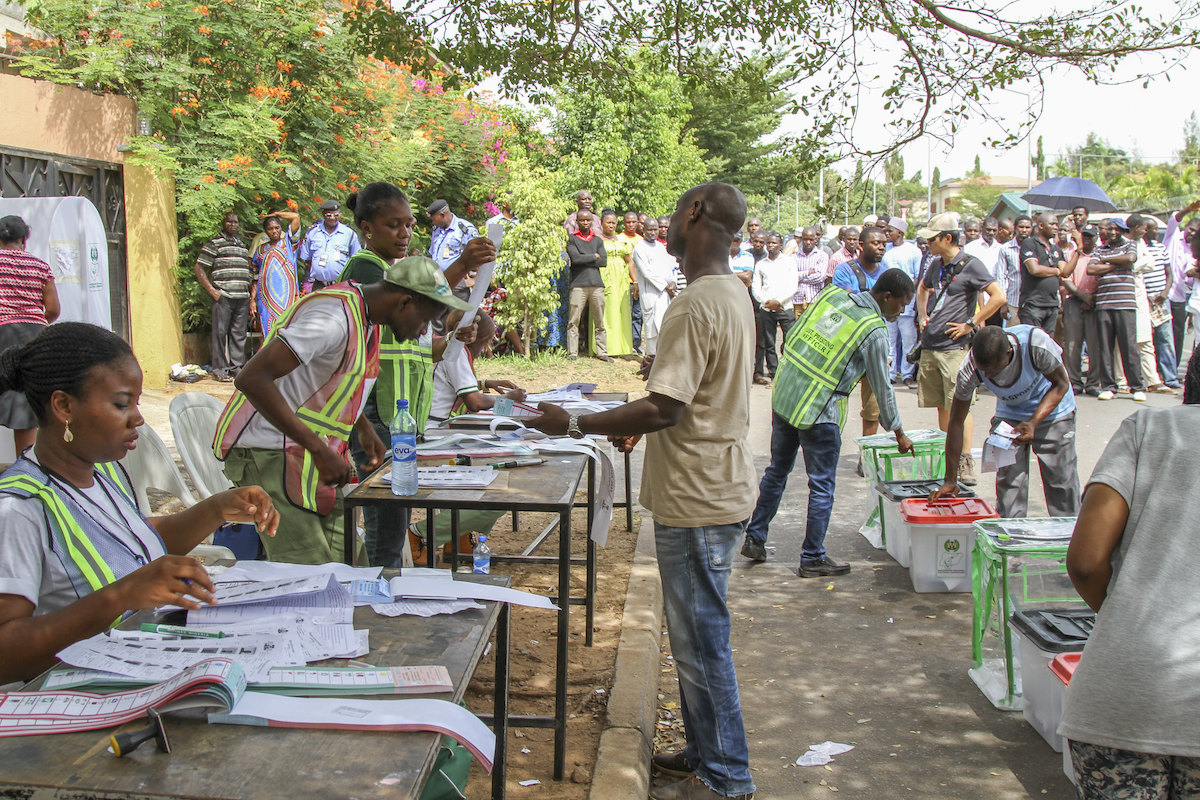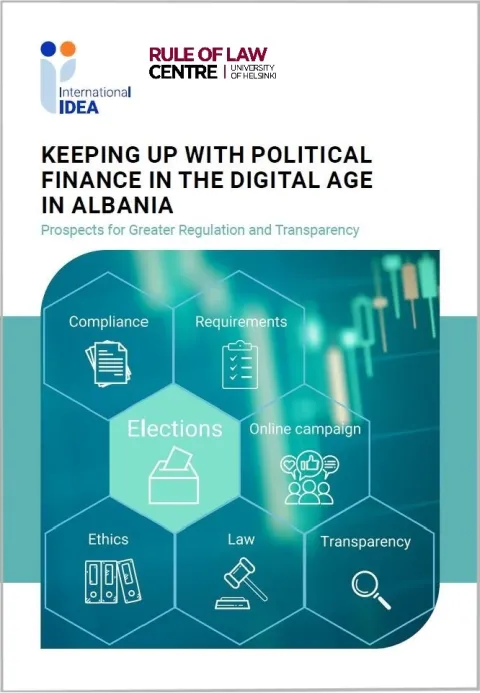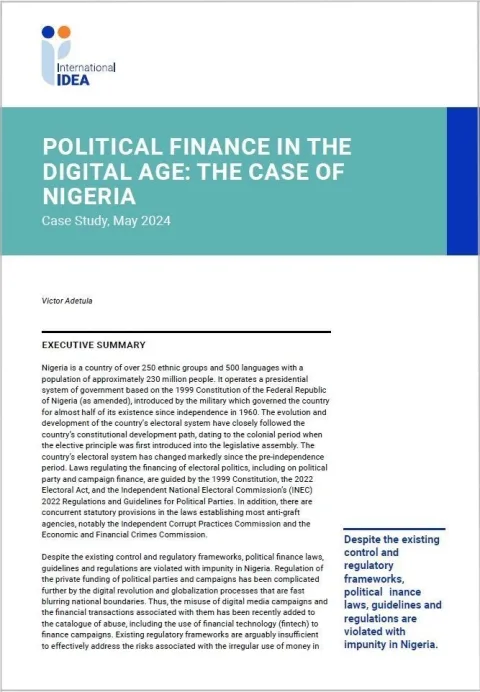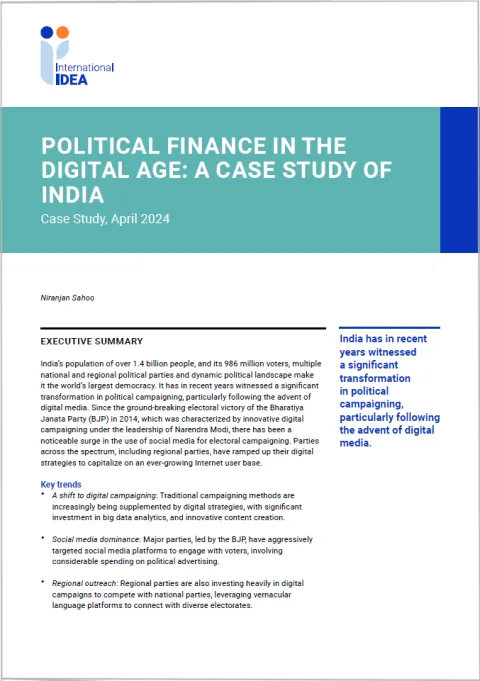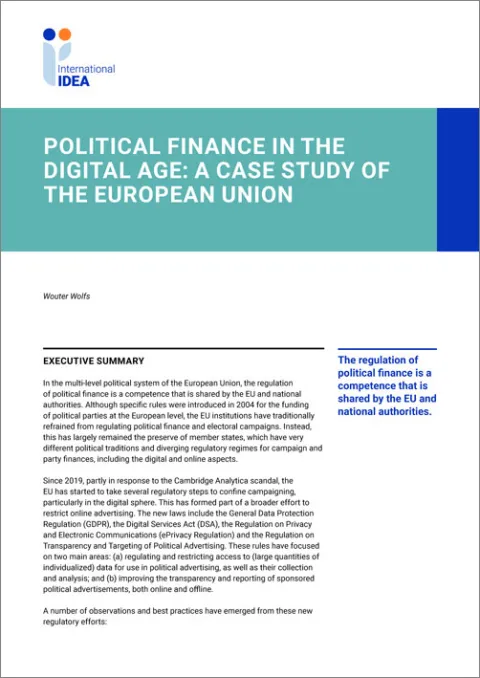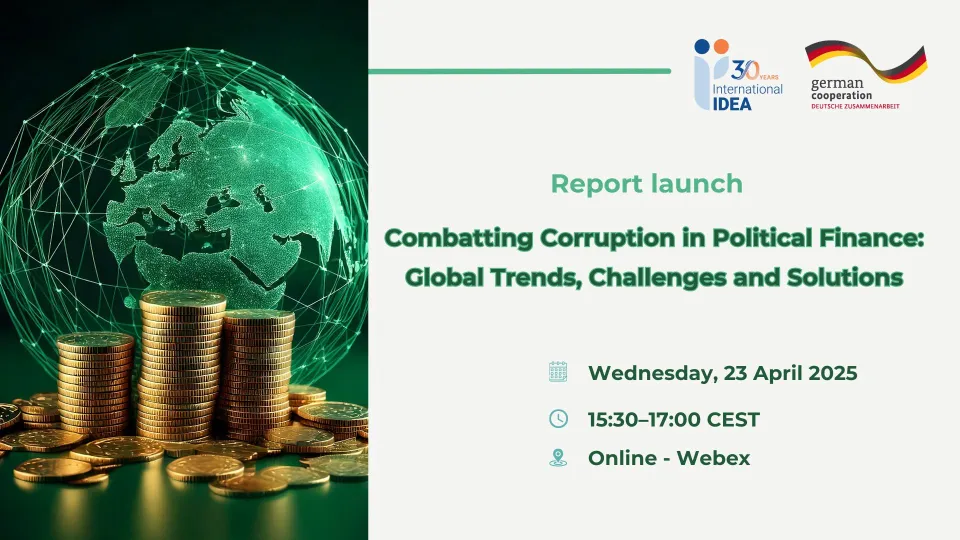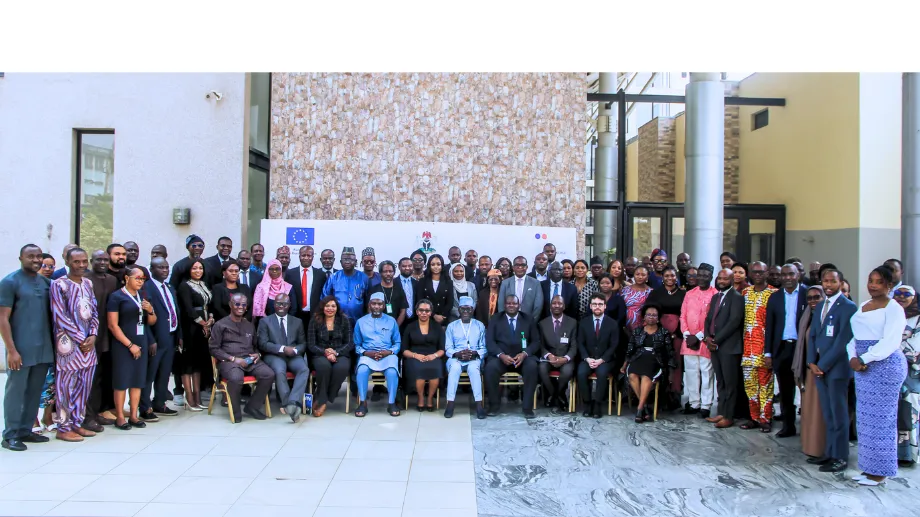Codes of Conduct on the Rise: Fair and Ethical Political Campaigning Online
In an era where digital platforms have become arenas for political discourse, fuelling the use of unethical campaigning and the spread of disinformation, trust in the legitimacy of election campaigns grows in importance. This Policy Brief delves into soft law solutions as a means to rebuild trust in political parties' digital campaign practices while navigating the tensions between balancing freedom of expression and ethical campaign conduct, underscoring the role of voluntary codes of conduct and offering practical insights and recommendations for stakeholders.
Focusing on the European context, the Brief explores the use of codes of conduct to steer online political campaigning. Drawing on insights from the negotiation process behind the Dutch Code of Conduct on the Transparency of Online Political Advertising, it offers perspectives aimed at inspiring similar codes through processes of co-creation with peers. The Brief emphasizes the value of co-created codes of conduct tailored to unique electoral contexts and the specific requirements of stakeholders such as political parties, electoral authorities, and civil society. Leveraging its expertise in facilitating and researching codes of conduct for online political campaigning, the author proposes a comprehensive 15-step checklist to aid in their development.
Details
Related databases & tools
Contents
Summary
1. Introduction
2. Navigating ethical political campaigns through codes of conduct
3. Case study: the Dutch code of conduct for transparent online political advertising
4. Preparing for the 2024 European elections
5. Conclusion
Annex A. Comparison of online political campaign issues
Give us feedback
Do you have a question or feedback about this publication? Leave us your feedback, and we’ll get back to you
Send feedbackCodes of Conduct on the Rise: Fair and Ethical Political Campaigning Online
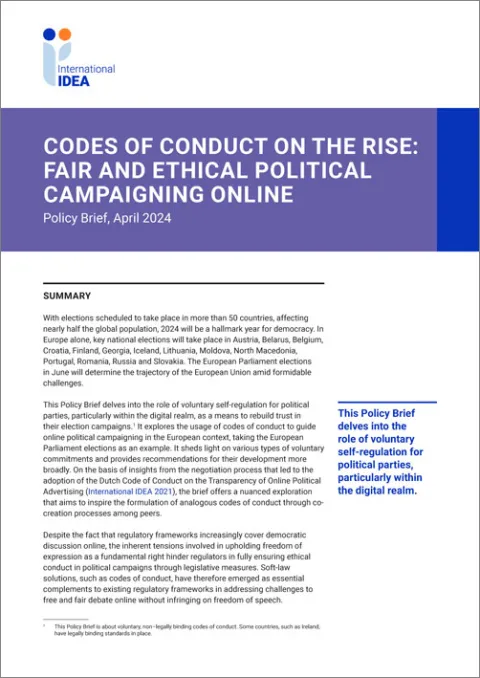
| Total views | 3973 |
|---|---|
| Downloads | 242 |
| Rating |
Related databases & tools
Give us feedback
Do you have a question or feedback about this publication? Leave us your feedback, and we’ll get back to you
Send feedback
